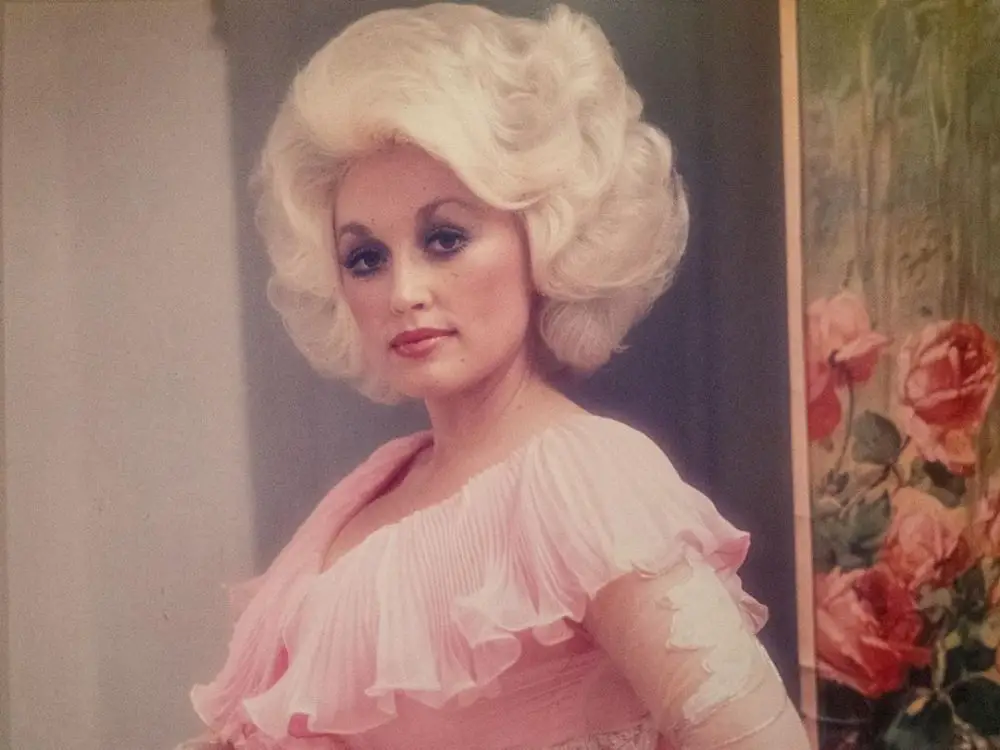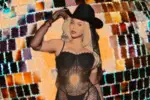Musicians attract specific fan bases. Your grandparents likely listen to Frank Sinatra. Boy bands are usually the music of choice for preteen girls. Kanye West is adored predominantly by men in their 20s. Of course, every performer caters to a generalized target audience, and artists can attract fans outside these narrow categories as well. But rarely does an artist ever attract a fan base so diverse it defies categorization. Unless you’re Dolly Parton.
Parton is a country music star, businesswoman and humanitarian. She first rose to stardom in 1967 with the release of her debut album, “Hello, I’m Dolly.” Yet she remains just as relevant in 2020, earning her the status of American icon.
Born in the foothills of the Great Smoky Mountains in eastern Tennessee, Parton’s music naturally attracts the typical country music fan base of Southerners and rural country folk. She sings wistfully of her childhood in “My Tennessee Mountain Home.” She tells wild stories about Southern country life in songs like “Curse of the Wild Weed Flower” and “Possum Holler.”
She Celebrates the Working Class
Working-class people everywhere love the singer. The lyrics of Parton’s “Sing for the Common Man” celebrate everyday working folk in a sort of populist appeal: “You know the working man/ He builds what others plan/ So everyone should sing his story.”
Many people find this song, as well as songs like “9 to 5,” to truthfully express their experiences. However, her reach is far wider than just country fans and blue-collar laborers.
She’s a Feminist and an LGBTQ+ Supporter
Parton is also touted as a hero by the transgender community, and she’s seen as the original third-wave feminist by today’s young feminists. According to a podcast called “Dolly Parton’s America,” when second-wave feminism rejected the idea of femininity, Parton took performative femininity to the extreme.
Parton’s style is purposefully gaudy. She proudly boasts enormous breast implants, piles her bleached blonde locks into voluminous updos and applies heavy makeup to highlight her facial features, many of which are enhanced by plastic surgery.
The performer loves her look and wears her style unapologetically. Parton often makes light-hearted jokes about her appearance and has publicly announced that she modeled her style after a local prostitute she admired as a kid.
Many members of the transgender community, and the LGBTQ+ community in general, look up to her. Some even consider her a drag queen. In fact, Parton entered a drag Dolly Parton look-alike competition — and lost!
Just as the LGBTQ+ community loves the singer, she loves and advocates for the community in turn. In 2016, when there was national talk about banning transgender people from public bathrooms aligning with their gender identity, Parton took a clear stance on the ban: “I think everybody should be treated with respect. I don’t judge and I try not to get too caught up in the controversy of things. I hope everybody gets a chance to be who they are. I just know, if I have to pee, I’m gon’ pee, wherever it’s got to be.”
The musician’s clear sense of justice is peppered with humor and lightheartedness. Addressing marriage equality, Parton said, “I think love is love and we have no control over that … I don’t judge or criticize and I don’t think we’re supposed to.” With a laugh, she continued, “Why can’t they [same-sex couples] be as miserable as us heterosexuals in their marriages?”
Though her sentiments about queer acceptance are hardly radical in today’s world, they are certainly radical for a 72-year-old country singer from the backcountry of Tennessee. More unexpected still is her ability to maintain her country, progressive feminist and LGBTQ+ fanbases simultaneously.
She’s a Workplace Equality Advocate
Parton is an advocate for workplace equality. In 1973, a group of women led by Karen Nussbaum created a nonprofit foundation, 9to5, which advocated for fair treatment of women in the workplace. Shortly after its founding, the organization inspired a movie by the same title, a revenge comedy about a group of women empowering themselves to get back at their abusive male boss.
Parton starred in the film and wrote its titular theme song. Since then, she has been one of the faces for the workplace equality movement.
Her Forward-Thinking Music Reaches Audiences of Every Kind
She also sings left-leaning songs, such as “Deportee (Plane Wreck at Los Gatos),” originally written by Woody Guthrie. “Deportee” explores the trials and tribulations of being an undocumented immigrant who is mistreated and unappreciated in the United States of America.
Parton’s high-pitched voice rattles with desperation and longing, poignant enough to reach the ears of the most conservative Americans and fill their hearts with empathy.
She manages to be an activist without being divisive, which is no small task in today’s polarized political climate. As per the lyrics of “Sing for the Common Man,” Parton celebrates working-class people, especially those from Appalachia, who likely voted for President Donald Trump in 2016.
Nevertheless, the singer outwardly supported Hillary Clinton in the 2016 election. Unlike many other stars, her approval ratings were unaffected by her political stance.
Parton is forward-thinking, but she hasn’t forgotten her roots. In fact, she still cares deeply for the people of Gatlinburg, Tennessee. In 2016, when a forest fire ravaged the region, the performer wasted no time. She founded the “My People Fund,” which paid $1,000 per month for six months to victims displaced or affected by the fires.
According to David Dotson, president of the Dollywood Foundation, the “My People Fund” delivered monthly checks to 921 families. Perhaps it is her dedication to her country mountain home that strikes a chord with residents of eastern Tennessee and other rural areas.
Parton’s home region in eastern Tennessee is also ravaged by rural poverty in many counties. However, the musician’s own theme park, Dollywood, has built up the region’s tourism industry, along with the Great Smoky Mountains National Park.
Dollywood is a theme park dedicated to all things Dolly Parton and all things country. Welcoming 2.5 million guests each year, Dollywood’s popularity has led to enormous development in the surrounding area, Pigeon Forge. Though the shameless gimmicks of Pigeon Forge detract from the region’s natural beauty and are a controversial subject, the expansion of the tourism industry surrounding Dollywood has brought considerable wealth to an otherwise poor region.
What makes Dolly Parton so appealing to so many people? Perhaps, it’s her uncompromising acceptance of the many quirks of humankind.
The lyrics of her 1991 song “Family” make this clear: “Some are preachers, some are gay/ Some are addicts, drunks, and strays/ But not a one is turned away when it’s family.” The lyrics show her philosophy of open arms and non-judgmentalness.
The magical unification of Parton’s fan base has everything to do with her own attitudes. She believes in humanity in all its forms. Her motto seems to be “Who am I to judge?” The singer’s words welcome listeners into her flock, no matter who they are. To Parton, humans are humans, and she accepts them all.

















